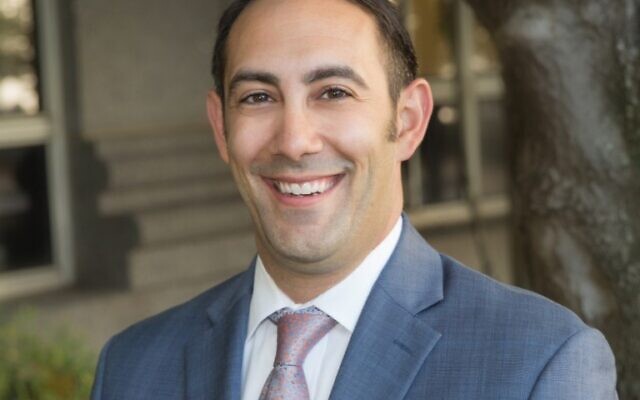Israelis Face Fifth Election in October
After only one year, the Naftali Bennett government dissolves itself.

Atlantans may be tired of voting in primaries and runoffs for school boards, judgeships and local and federal seats. But imagine having to vote five times in three-and-a-half years for presidents, senators and members of the House of Representatives.
That is precisely what is about to happen in Israel.
Just one year and one week after the current Israeli government was sworn in last June following a fourth set of national elections, it is now in the process of being dissolved, if nothing unexpected occurs, that is — a perennial possibility in Israeli politics.
After several required votes during the last week of June, Prime Minister Naftali Bennett is expected to hand over the reins of power to his alternative prime minister, Yair Lapid, who will retain his position as Foreign Minister, as settled during last year’s coalition agreement. The two politicians had agreed to take turns as prime minister, although Bennett headed a much smaller party than Lapid. In the last couple of months, both members of Bennett’s party and other coalition members had either pulled out of the government or threatened to pull out, leaving the coalition without a necessary majority.

According to American Jewish Committee Regional Director Dov Wilker, “Bennett had two choices: to wait for the final collapse of his coalition, or to ‘control’ the political disaster and announce elections. He took the approach that made the most sense for him and for Lapid.” Wilker, who is a citizen of both Israel and the U.S., noted that this move positions Lapid as “the caretaker prime minister [for] as long as” it takes another government to be formed.
Elections are tentatively set for Oct. 25. If no member of the country’s parliament — the Knesset — is able to pull together a majority of 120 members after that election, Lapid will remain acting prime minister until someone does so. After the first three elections, starting in April 2019, no Knesset member was able to form a government. It was only after Bennett and Lapid cobbled together a coalition of eight parties, stretching from right to left and including an Arab Islamist party, that Israel was able to form a functioning government.
That unusual coalition government was always thought to be shaky because of the parties’ disparate perspectives. But they were bound together out of a desire to end former Prime Minister Benjamin Netanyahu’s hold on power.
Polls immediately following the move to disperse the government and to go to elections indicated, however, that Netanyahu may, just may, return to power after the fall election, despite being a defendant in a criminal trial for fraud and bribery.

Sperling, who will be teaching two courses on Israel at the University of Georgia in the fall semester, noted that the upcoming election is a “fascinating time for students.” UGA’s School of Public and International Affairs recently won a three-year grant from the Israel Institute to support courses and programming on modern Israel.
The Israel Democracy Institute in Jerusalem noted that, since 1996, Israel has led the world in frequency of elections. Between 1996 and 2022, Israel has held an election every 2.40 years, more frequently than Greece (2.53), Spain (2.96), Canada (3.04), the United Kingdom (3.77) and Italy (4.38). According to the IDI, Israel had been in seventh place until April 2019, when the current cycle of elections began.

“The decision by Prime Minister Bennett to disperse the Knesset and head to a fifth election in just three years is a clear indication that Israel’s worst political crisis did not end when this government was sworn into office, but rather merely receded only to return when this coalition failed to find a way to continue moving forward,” said IDI President Yohanan Plesner.
“While the Bennett-Lapid government undoubtedly played an important role by passing a budget and moving forward with other important legislation, this ongoing crisis will not come to an end until Israel’s leaders put their political differences aside and enact long-overdue electoral and constitutional reforms,” he added.
On a positive note, Plesner said that it is “important to note that while this government was one of Israel’s shortest to hold office, it played an historical role by including an Arab party in the coalition and in the decisions made by the national leadership, and therefore paving the way for the possibility of more inclusion by the Arab minority in the political process and Israeli society as a whole.”
- Israel news
- politics
- Jan Jaben-Eilon
- House of Representatives
- Prime Minister Naftali Bennett
- yair lapid
- American Jewish Committee Regional Director Dov Wilker
- the Knesset
- Prime Minister Benjamin Netanyahu
- Fraud
- bribery
- Eli Sperling
- University of Georgia
- School of Public and International Affairs
- IDI President Yohanan Plesner
- Israel Democracy Institute



comments